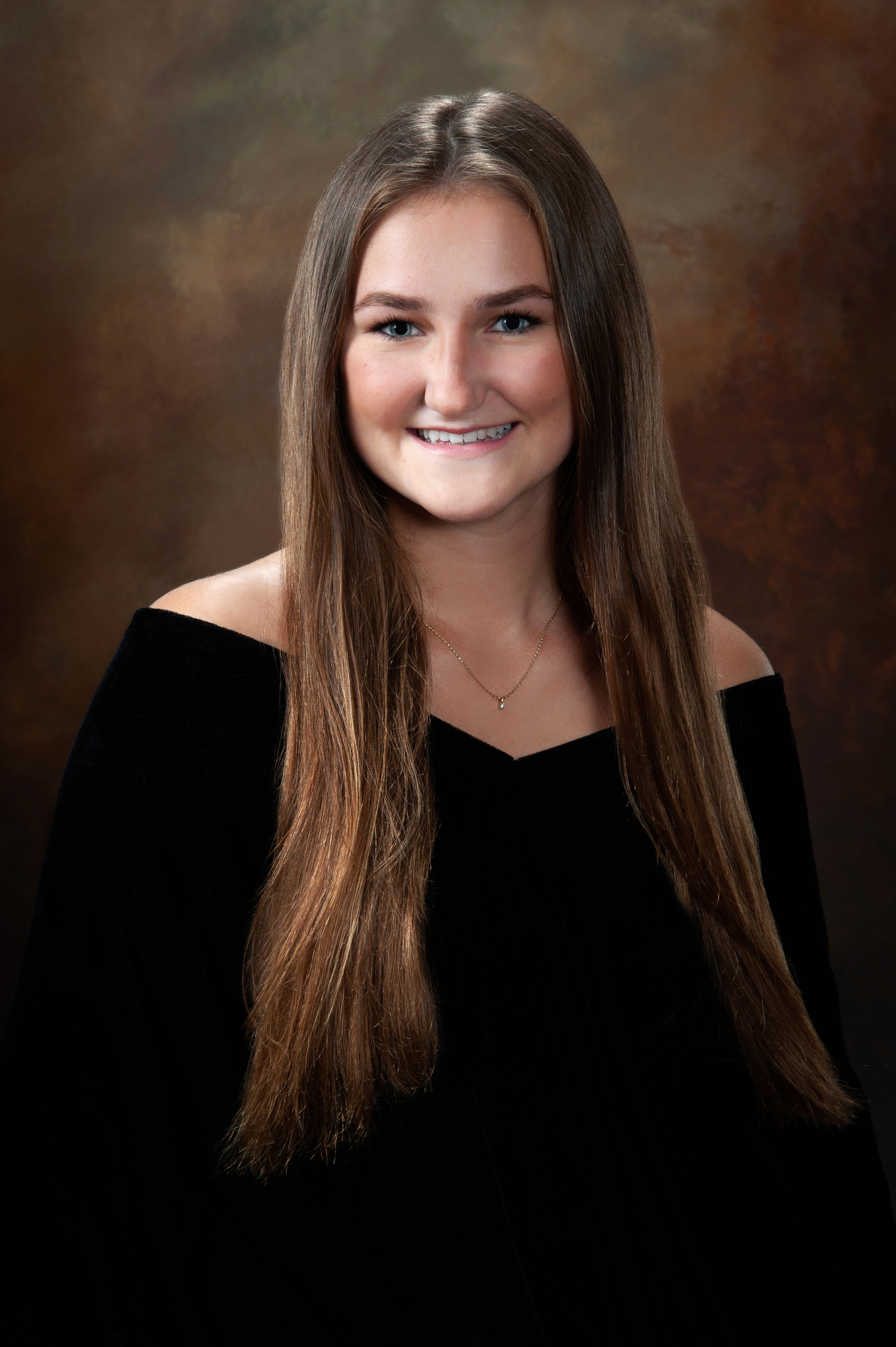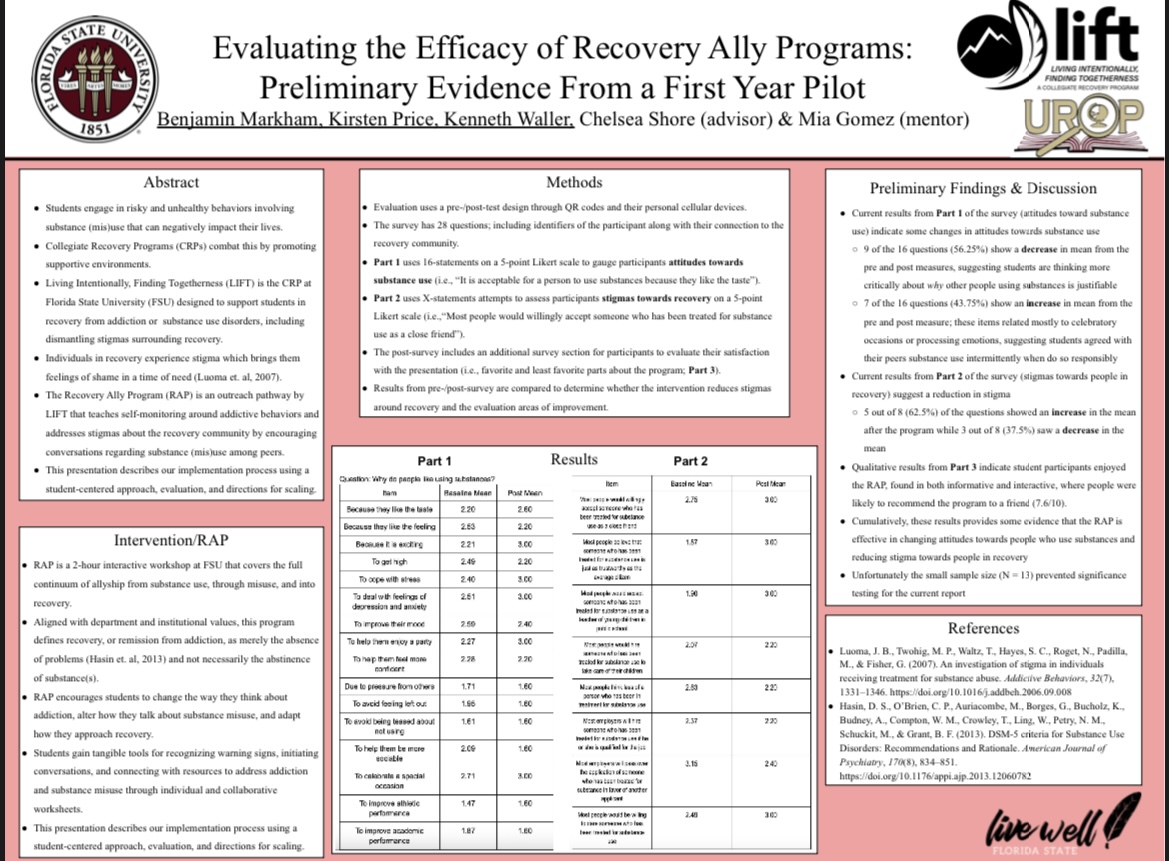Research Symposium
23rd annual Undergraduate Research Symposium, April 6, 2023
Kirsten Price Poster Session 4: 4:00 pm - 5:00 pm/ Poster #100

BIO
Kirsten is a second-year student majoring in Pre-Public Health and double minoring in Communications and Public Administration at Florida State University. She serves as an undergraduate research assistant for the recovery ally program and the campus rec program within the Center for Health Advocacy and Wellness. Specifically, through the recovery ally program, this program has not only taught her how to support her peers going through recovery but also understand how to reach out to those that may need support. Going forward, she plans on utilizing her voice to talk about the stigmas surrounding substance misuse and how to address misuse specifically on college campuses. Kirsten plans on attending graduate school for public health and being an ally and supporter of people in recovery and those that are wishing to be in recovery.
Evaluating the Efficacy of Recovery Ally Programs: Preliminary Evidence From a First Year Pilot
Authors: Kirsten Price, Chelsea ShoreStudent Major: Public Health
Mentor: Chelsea Shore
Mentor's Department: Higher Educational Leadership & Policy Studies Mentor's College: College of Education Co-Presenters: Ben Markham, Kenneth Waller
Abstract
The Recovery Ally Program (RAP) is a 2-hour interactive workshop at Florida State University attempting to address the full continuum of allyship from substance use, through misuse, and into recovery. It facilitates self-reflection and self-monitoring around substance use and misuse. It encourages students to change the way they think about addiction, alter how they talk about substance misuse, and adapt how they approach recovery. Students gain tangible tools for recognizing warning signs, initiating conversations, and connecting with resources to address addiction and substance misuse. This presentation describes our implementation process using a student-centered approach, evaluation, and directions for scaling. We wanted to test the efficacy of this program by determining if it increases student’s confidence in talking to their peers about substance misuse. Participants were surveyed before and after the program in order to obtain data.
Keywords: Collegiate Recovery, Health and Wellness Initiatives, College student initiatives


